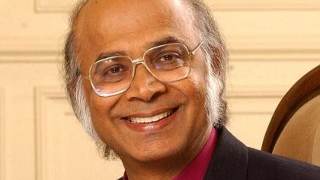Bishop Nazir-Ali's statement on allowing Bishops in civil partnerships

The following is the statement released by Bishop Nazir-Ali on 4th January:
Bishop Nazir-Ali questions move to allow Bishops in civil partnerships
Former Bishop of Rochester, Michael Nazir-Ali, has responded to the announcement from the CofE's House of Bishops to allow clergy in civil partnerships to become Bishops if they promise to be celibate.
Bishop Nazir-Ali said: "When the Civil Partnerships Act came into force, the Church of England, like other churches, had an opportunity, as far as its clergy were concerned, to opt out. It chose not to do so allowing, rather, the government of the day to change ecclesiastical law by Order.
"When the House of Bishops Pastoral Letter was issued in 2005, I asked how clergy could be allowed to be in a relationship which, under the provisions of the Act, mimicked marriage, even if the relationship was ‘celibate’. Some of us had tried, in the House of Lords, to amend the Act in such a way that it did not mimic marriage but this was not acceptable to the government of the day. Since then public perception has increasingly seen such partnerships as equivalent to marriage. What I said then about the clergy applies even more to bishops.
"Given the confidentiality of relationships between bishops and clergy, how is the requirement of celibacy to be monitored and, if necessary, enforced?
"In the context of same-sex relationships, what exactly does ‘celibacy’ mean? Does the admission of those in civil partnerships to the episcopate, who state they are celibate, include those who were previously in actively homophile relationships including with their present partner? The House of Bishops statement does not elaborate on this point but it is crucial to an understanding of what celibacy might mean in this context".
